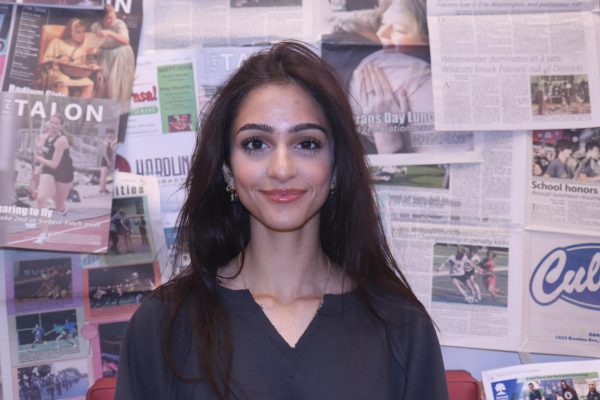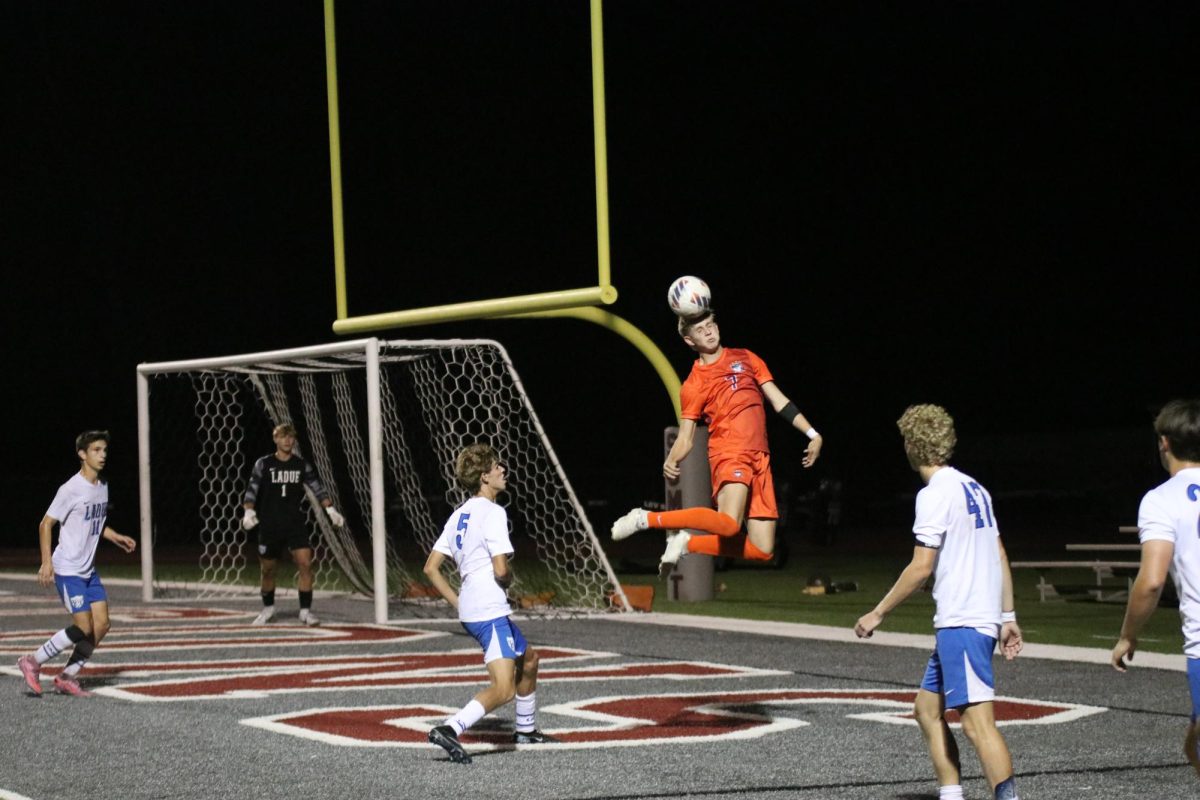Muslim students celebrate Ramadan
April 29, 2022
During the month of Ramadan, Muslims across the world fast from sunrise to sunset; refraining from eating or drinking until Maghrib (nightfall).
Ramadan originates from when verses of the Quran, the Islamic holy book, were beginning to be revealed to Prophet Muhammed. Many Muslims believe that Ramadan is a time for Muslims to strengthen their relationship with Allah (God). Freshman Tasniah Sifat said she thinks this as a perfect opportunity to use this month to an advantage because it’s easy to lose sight of things throughout the year.
“I think that throughout the year I see myself distancing myself from God; not intentionally but you get comfortable not worrying about your faith. Ramadan gives me a reason to give myself time for self-reflection,” Sifat said. Muslims view this time as a reminder of life’s intention and a time to discipline themselves, therefore also refraining from immoral acts such as lying, swearing, fighting, etc. They are encouraged to practice self purification and aim to leave this month with a stronger connection not only to God but to their own mental and physical beings as well.
Sifat said she tries to spend most of the month with her family to hopefully end Ramadan feeling refreshed and grateful for everything. She also said fasting during Ramadan makes her realize how much she had that she never seemed to appreciate before.
“When it’s over I feel really refreshed. During Ramadan I try to do more with my family so it’s nice feeling close with them by the end. I always want to feel a lot of gratitude at the end of the month. Fasting really shows you how much you have and how appreciative you should be for it,” Sifat said. The end of the holy month marks Eid, a holiday in celebration of Ramadan, on the first three days of Shawwal (the 10th month of the Islamic calendar). The Islamic calendar is a date-keeping system based on lunar cycles – and while Ramadan consistently lasts 29-30 days, the dates change every year due to the moon’s position in the sky. Traditionally, Eid is celebrated with family and friends and wearing one’s best/newest clothes. Sophomore Sora Ali honors Eid by spending time with her family and recognizing all she accomplished during Ramadan.
“Every year my family makes kind of a big deal out of Eid. We all get new clothes and jewelry and dress up to go out together. They also try to make it a point to pray together. Before COVID-19 happened we would go to the Mosque the first morning of Eid for prayer.” Ali said.
Extra prayers at night are conducted during this month in which long portions of the Quran are recited at a prayer called Taraweeh. However, everyday regardless of the circumstances, Muslims are to perform five prayers a day:
Fajr (sunrise prayer), Dhuhr (noon prayer), Asr (afternoon prayer), Maghrib (sunset prayer), and Isha (night prayer). Each prayer has a specific window of time in which it must be completed. Senior Sarah Alrashid said these prayers remind her of her priorities in life and help her stay content.
“Throughout the day, praying makes me realize what I should feel grateful for and also what actually matters. I feel so worked up and praying helps me remember that everything is temporary. I try to make it a point to pray because of how at ease it makes me feel,” Alrashid said.
Alrashid said that this month is crucial to Muslims in hopes of breaking bad habits and building priorities.
“This month is so important for Muslims because we see that if we are able to give up something that God has given to benefit us, then we are also capable of leaving the habits harmful to us,” Alrashid said.







